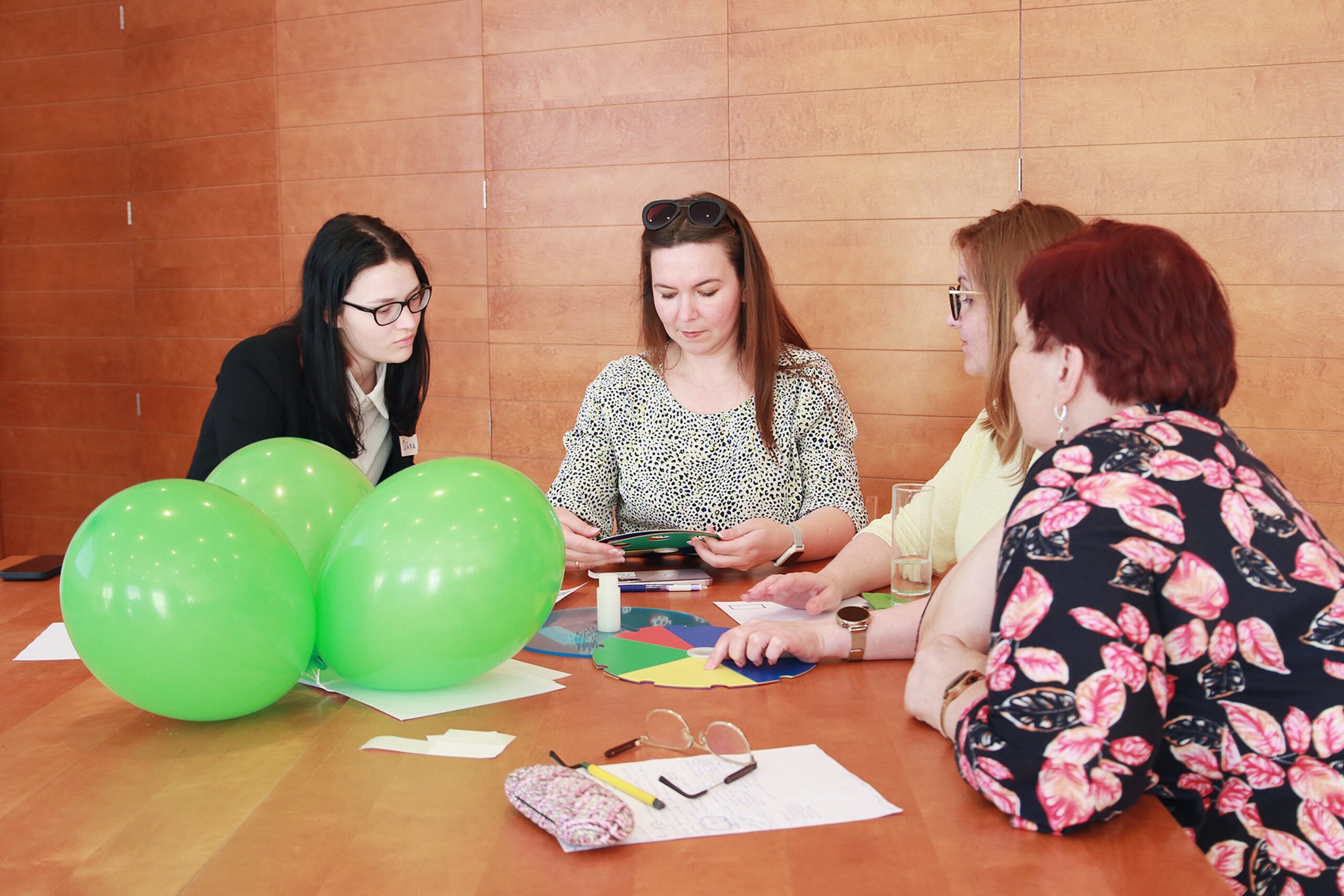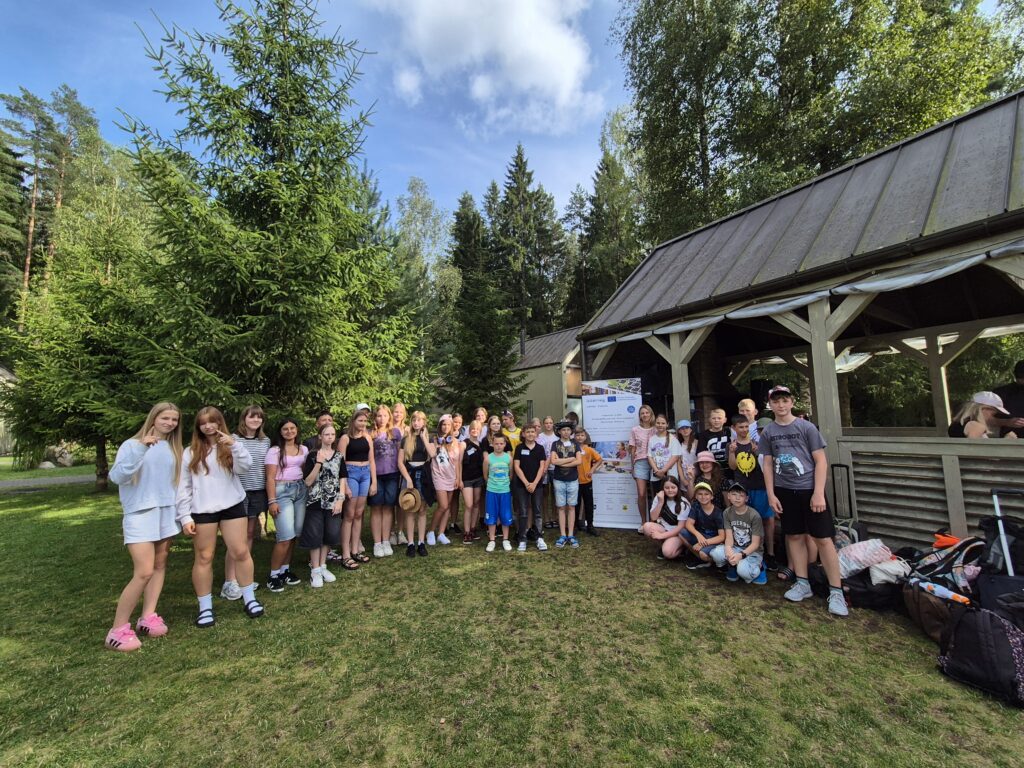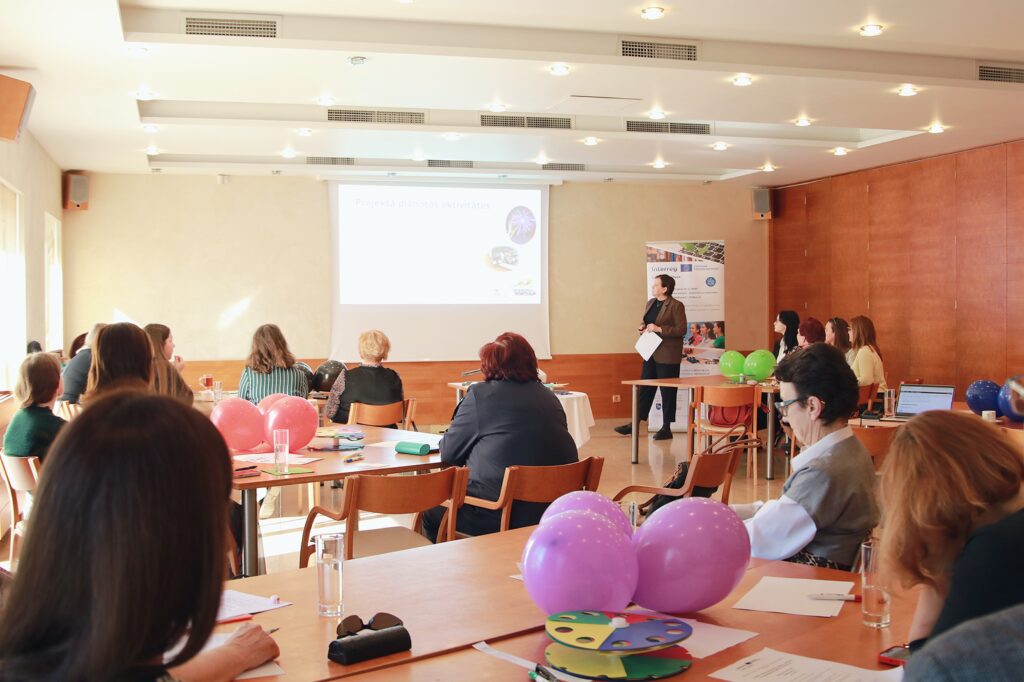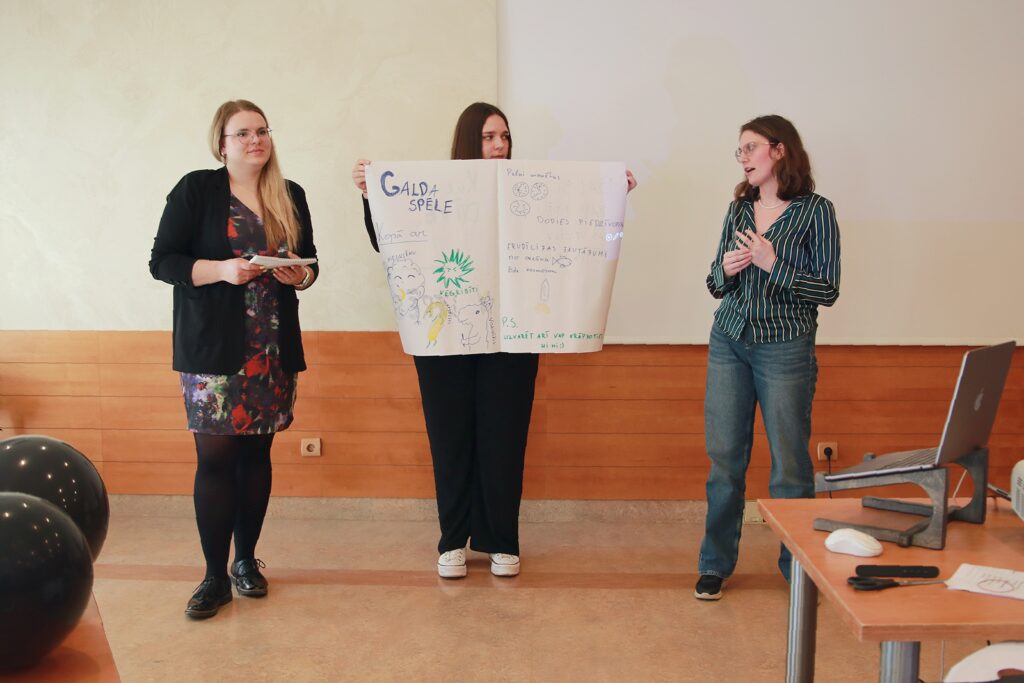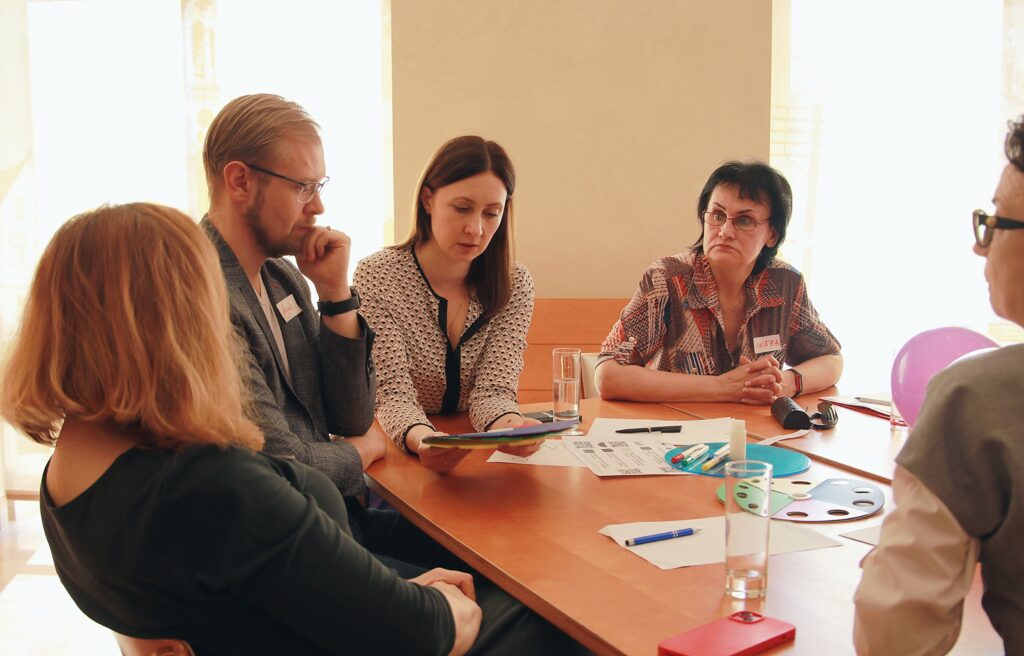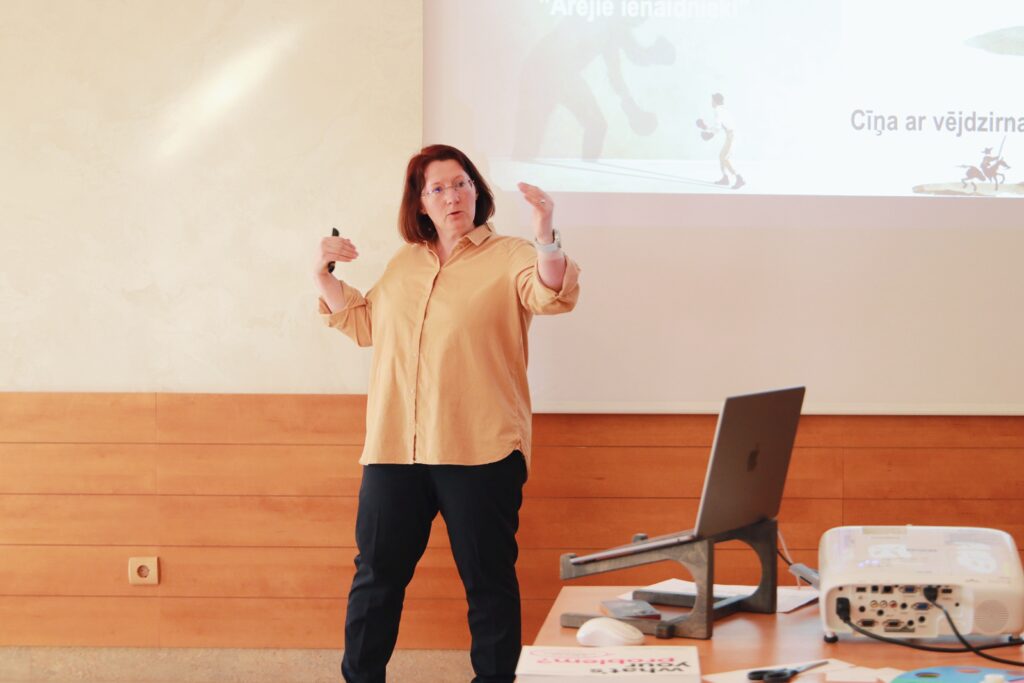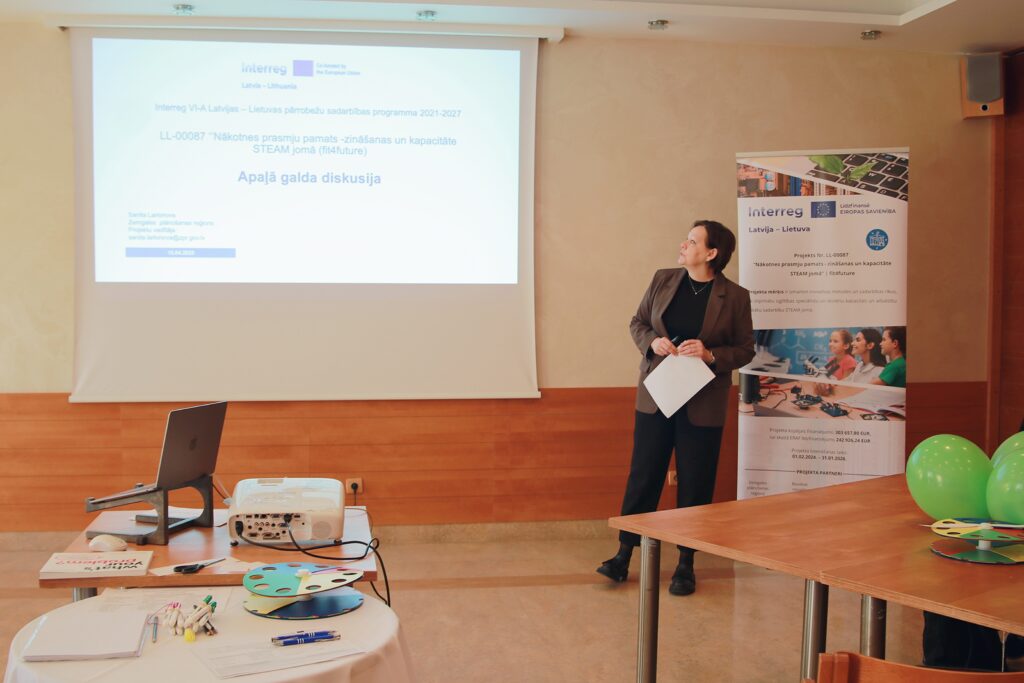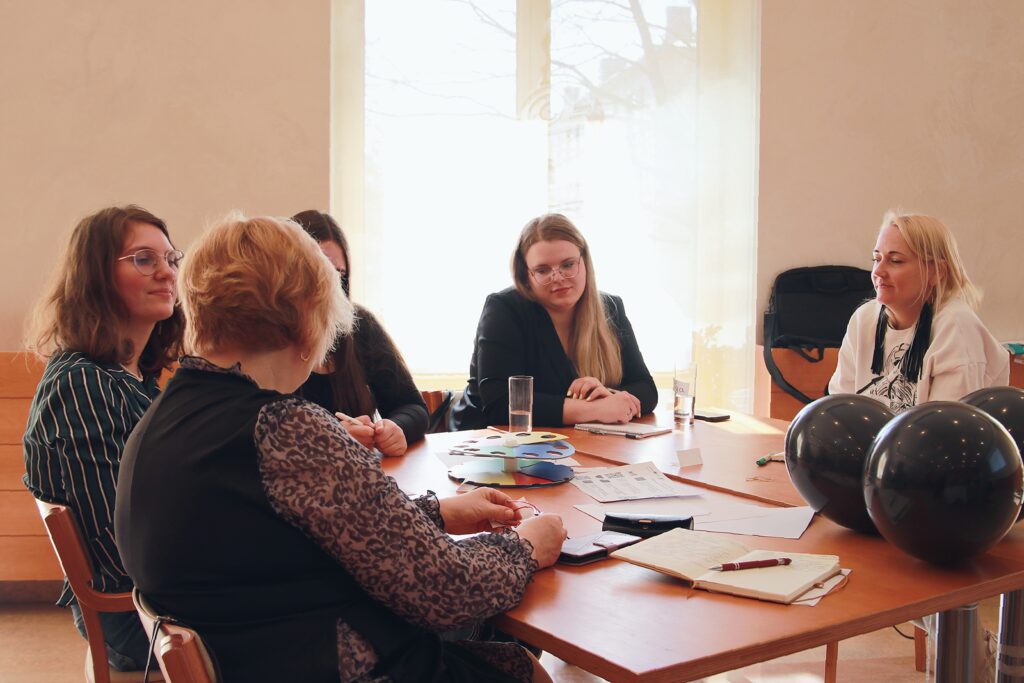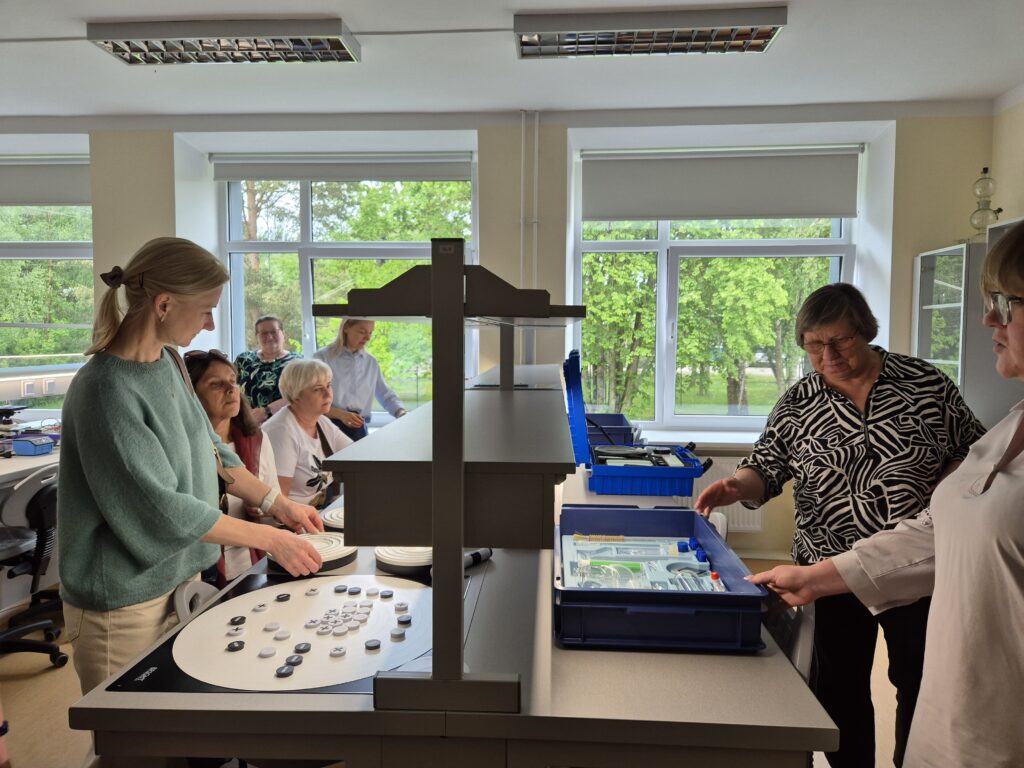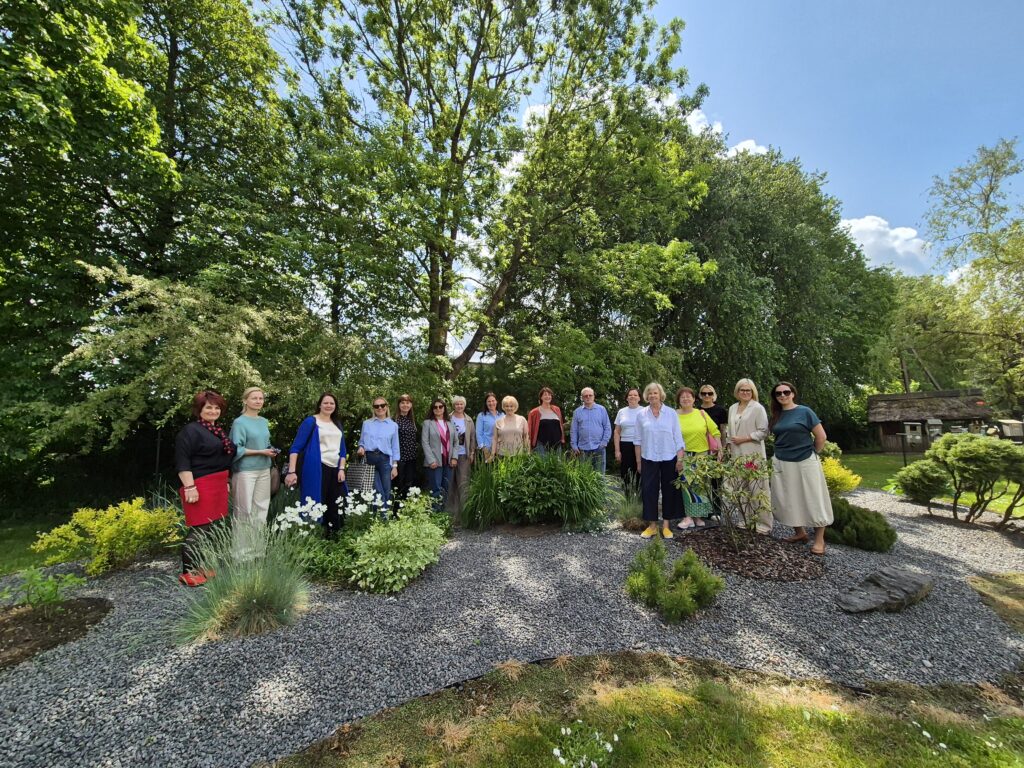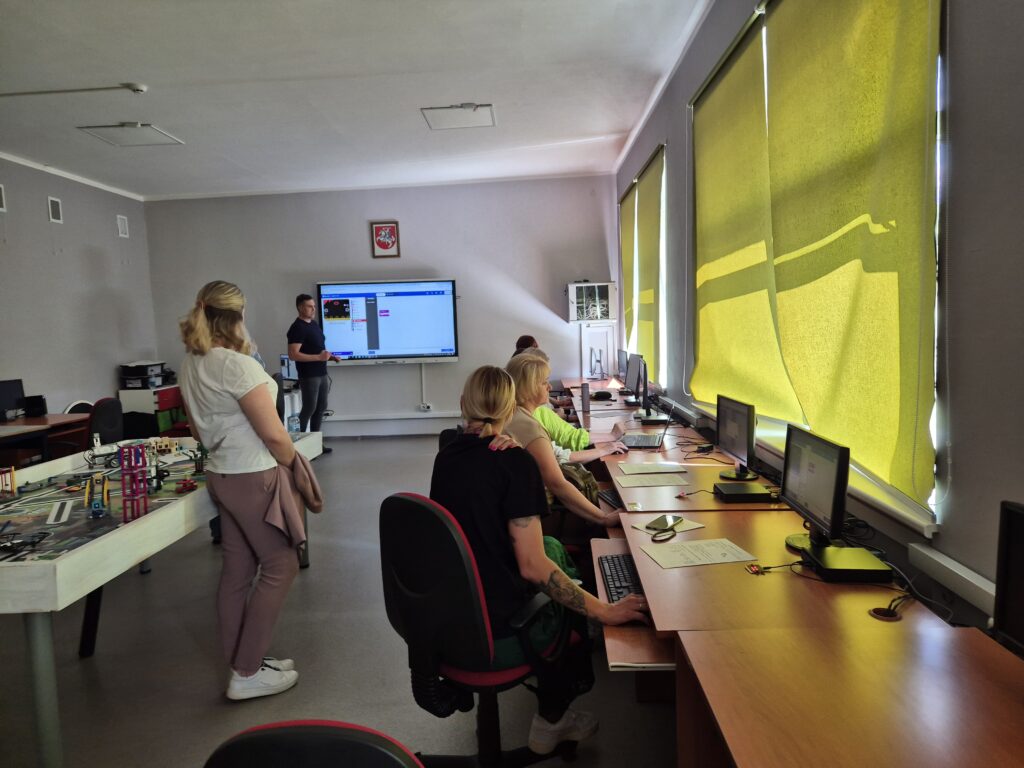As the second half of summer gets into full swing, the Interreg VI-A Latvia-Lithuania programme 2021-2027 cross-border project “The foundation of future skills – knowledge and capacity in the field of STEAM” (fit4future) continues to actively implement initiatives that strengthen the capabilities of education specialists, children, and youth in Science, Technology, Engineering, Arts, and Mathematics (STEAM). The project’s third period (February–July 2025) has been particularly saturated with diverse activities on both sides of the border.
In Lithuania, project partner Pakruojis District Municipality led the implementation of several key events. A notable example was a series of training cycles for Lygumai Basic School students held at the Šiauliai STEAM Centre in March and April 2025. During these hands-on sessions, students explored diverse topics, from the production of cosmetic bubbles to assessing the physical parameters of the eye and analyzing gluten in food products.
A cross-border event, the partners’ exchange of experience visit, was held on March 6, 2025, bringing together representatives from all project partners. The visit was dedicated to sharing knowledge and best practices, featuring presentations on the STEAM education experience at the Lygumai Basic School and fostering discussions among the Latvian and Lithuanian partners. This was followed by other important joint activities, including a round table discussion organized for education specialists from the Biržai and Pakruojis municipalities, and a successful STEAM summer camp for students from the project’s partner schools.
Meanwhile in Latvia, the Lead Partner, Zemgale Planning Region, organized a large-scale, cross-sectoral discussion in Jelgava, gathering specialists to collectively shape a shared vision for the future of STEAM in the Zemgale region.
Shaping the future of STEAM: the round table discussion in Jelgava
To promote understanding and find solutions for the development of the STEAM field in the region, a broad round table discussion was held in Jelgava on April 15. The event brought together more than 30 representatives, including students, parents, educators, and education policymakers from the Zemgale region. In a creative and dynamic atmosphere led by moderator Vita Brakovska, participants first identified and discussed key challenges. The most significant obstacles mentioned were a lack of resources, insufficient practical learning, teacher overload, and weak communication between schools, parents, and businesses.
After identifying the challenges, the participants moved on to finding solutions using a design thinking approach. Six working groups generated a total of 60 concrete ideas for strengthening the STEAM field. The ideas selected for testing covered a wide range, such as expanding the popular “Shadow day” into a “Shadow week,” introducing a more flexible learning approach, and creating mechanisms for meaningful parental involvement.
A creative idea for an educational board game titled “Where will I ever use this in life?” received special recognition and won the participants’ vote. The game’s goal is to help players understand in an engaging way how knowledge gained in STEAM subjects is useful in real life, bridging the gap between theory and practice.
Knowledge exchange in Lithuania
A similar approach to identifying challenges and fostering cooperation is also being implemented in Lithuania. During a round table discussion at Lygumai Basic School, education specialists from Biržai and Pakruojis districts discussed career education and the importance of STEAM subjects. Lecturer Jolita Danielienė led a session on “How to improve the teaching of STEAM subjects?”, during which participants not only gained theoretical knowledge but also tried out several practical tasks they could later apply in their work.
A look ahead
The project will remain busy until its conclusion on January 31, 2026. Future activities include continued training for students at the Šiauliai STEAM Centre, meetings with entrepreneurs, a “TECH camp” for educators, a robotics competition, an orienteering competition, and a “Solve an Entrepreneur’s Problem” contest.


